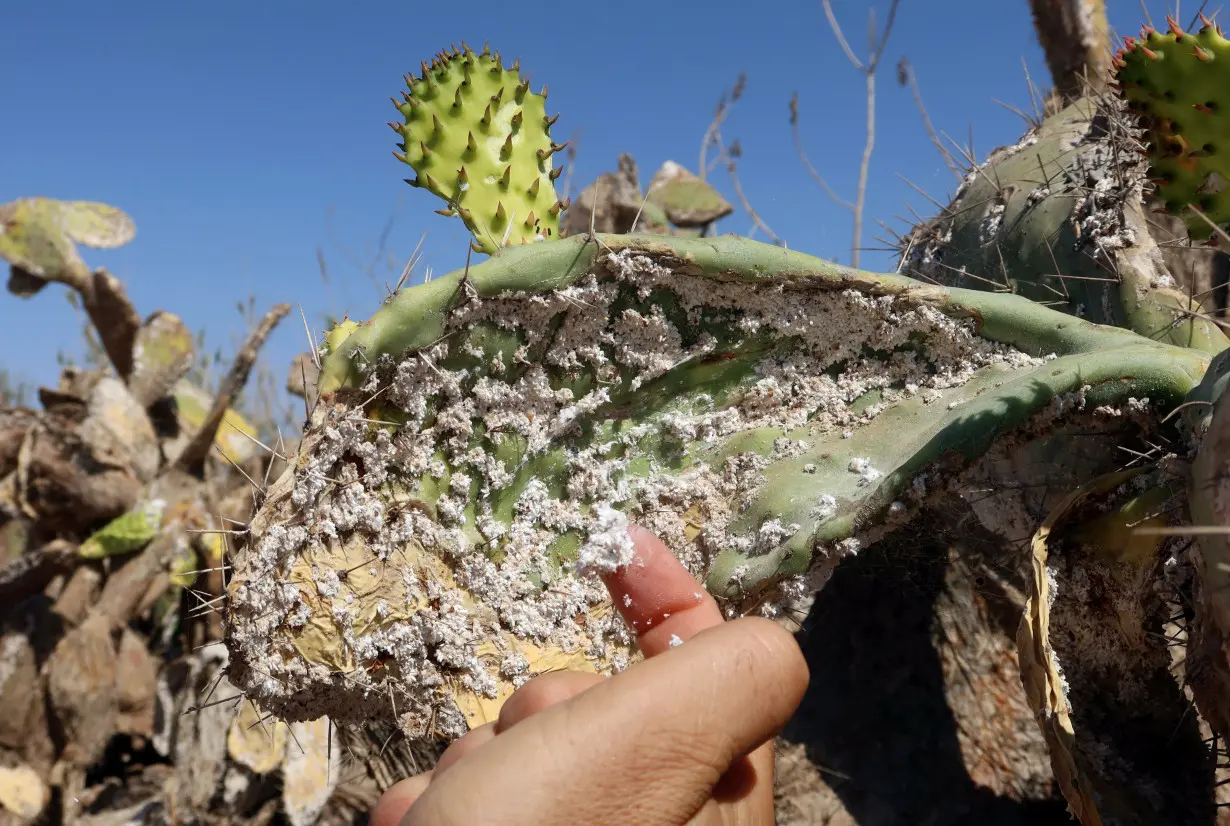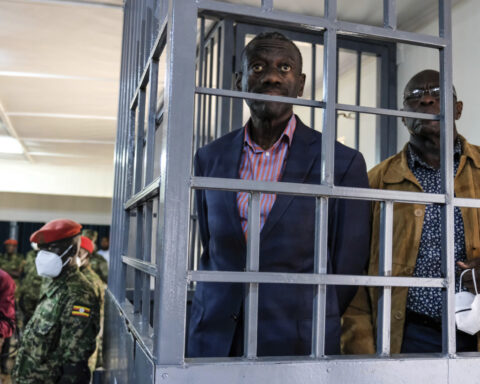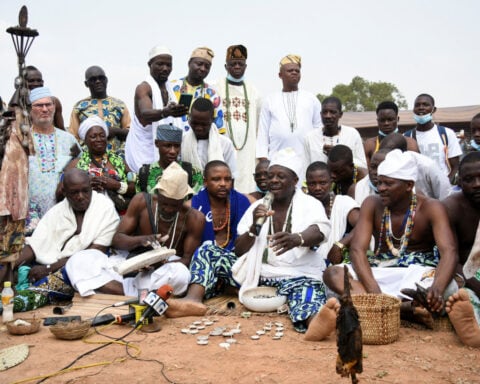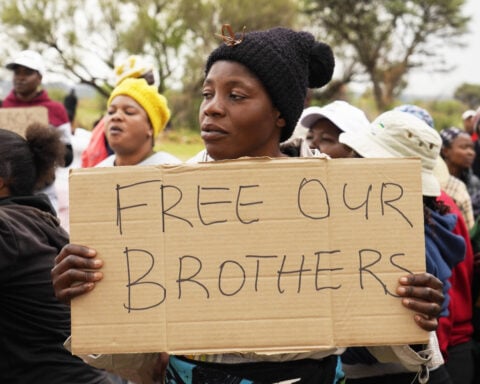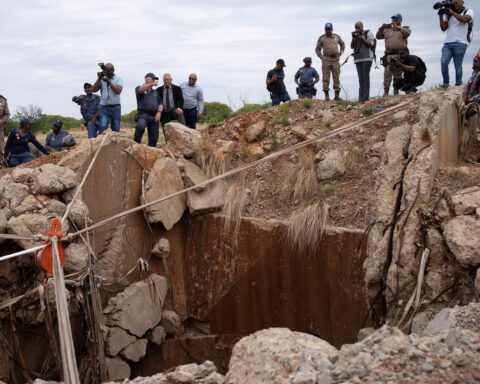By Jihed Abidellaoui
KAIROUAN, Tunisia (Reuters) - A tiny insect is ravaging Tunisia’s prickly pears, a critical source of revenue for the North African country's agriculture sector and economy.
"Our biggest fear, which has caused me insomnia, is the fear of the cochineal insect that threatens our harvest," says Bassem Sahnoun, a farmer struggling, like many others, to protect the popular fruit.
The insect, known to some as the prickly pear cochineal, has devastated vast areas of plantations and caused concerns about its economic impact since it was first discovered in the country in 2021, farmers and agricultural experts say.
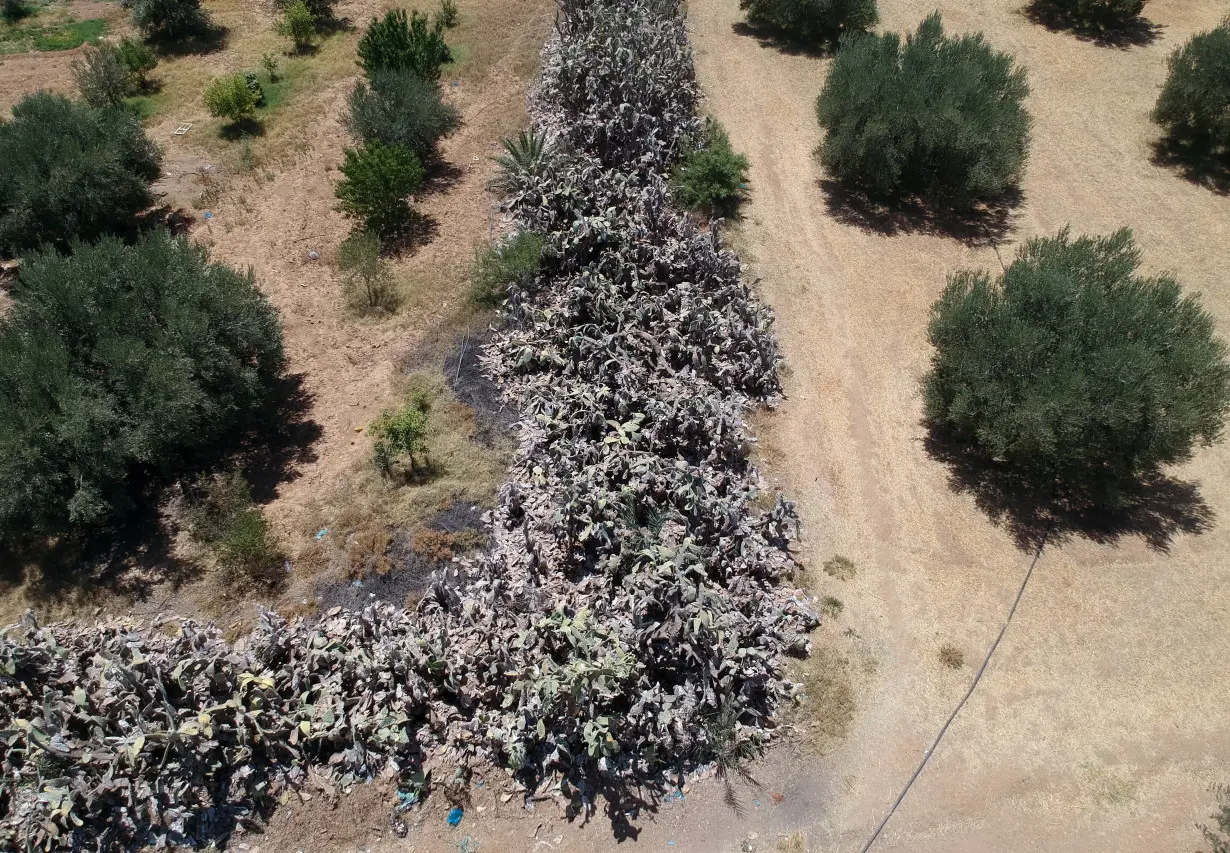
The bug sucks the sap from cactus pads, causing yellowing and eventual death of the plants.
Agriculture expert Faouzi Zayani inspected dying prickly pear trees.
"The cochineal insect affects the prickly pear tree. As you can see, the trees are dying, and consequently, we are losing the essence of things, which is the cultivation of prickly pears," he said.
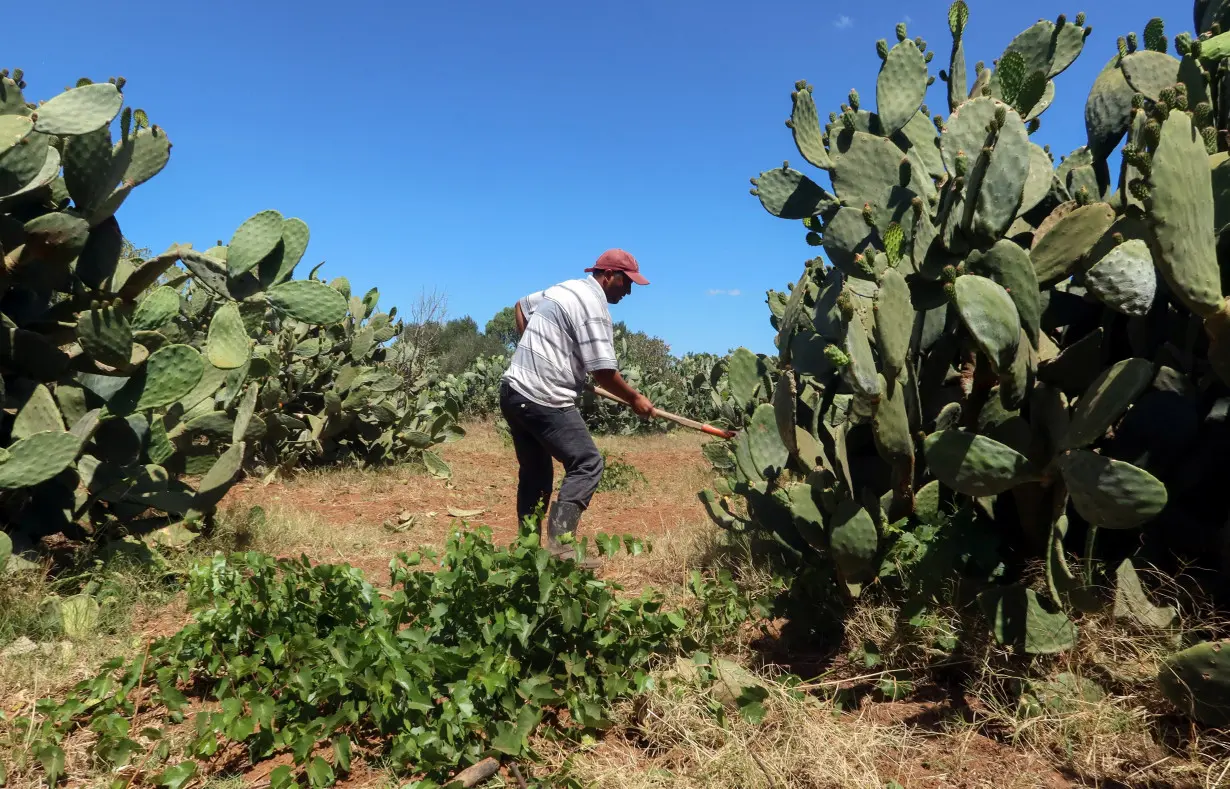
The insect, whose scientific name is dactylopius opuntiae, was first discovered in Mexico, he said.
"It was present there, and they treated it and had prevention methods," he added.
"Then it spread to Morocco in 2015. This insect also came to Tunisia in October 2021 in the city of Mahdia."
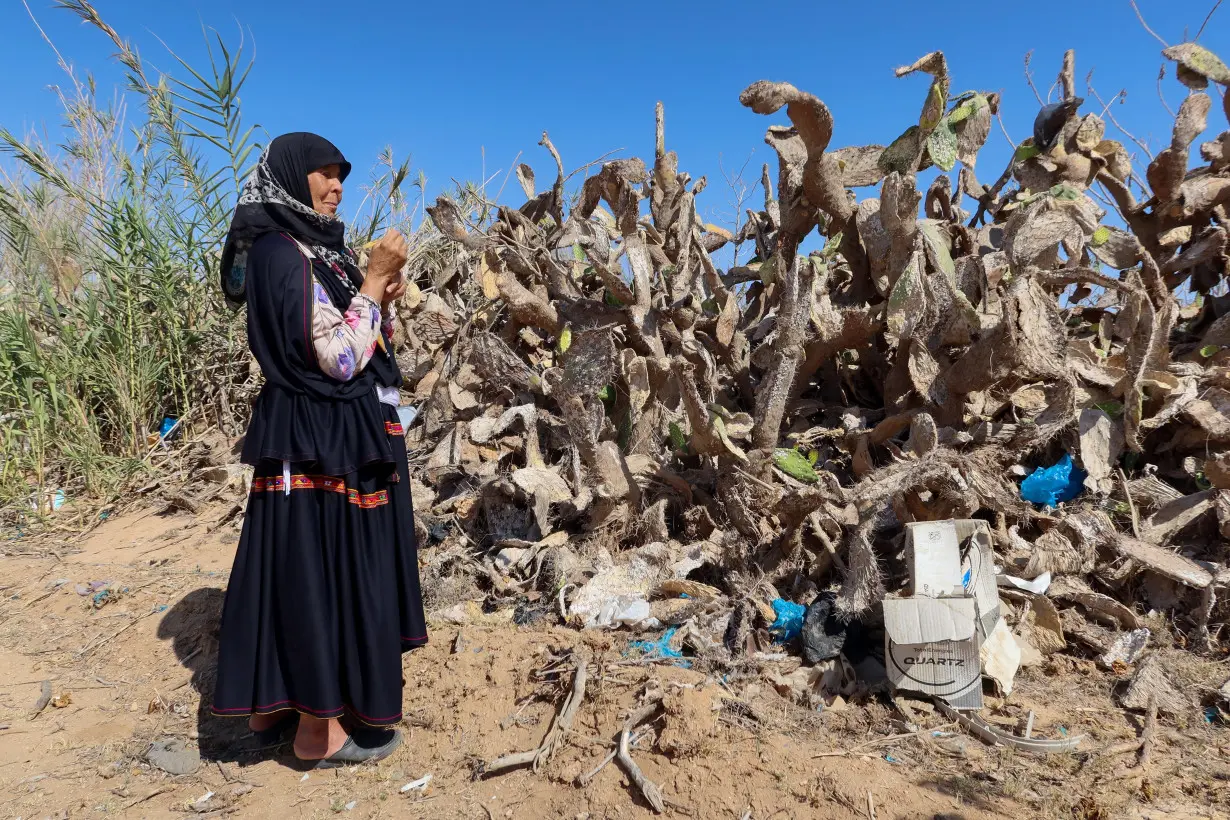
He estimates that prickly pears represent about 12% of Tunisia's agricultural land, making it second only to olive trees in agricultural wealth.
The pears cover approximately 600,000 hectares and are a significant source of income for thousands, particularly women who harvest and sell the fruit.
“This is our livelihood, it requires a lot of labour, and it's not just the farmer who benefits from it," Sahnoun said.
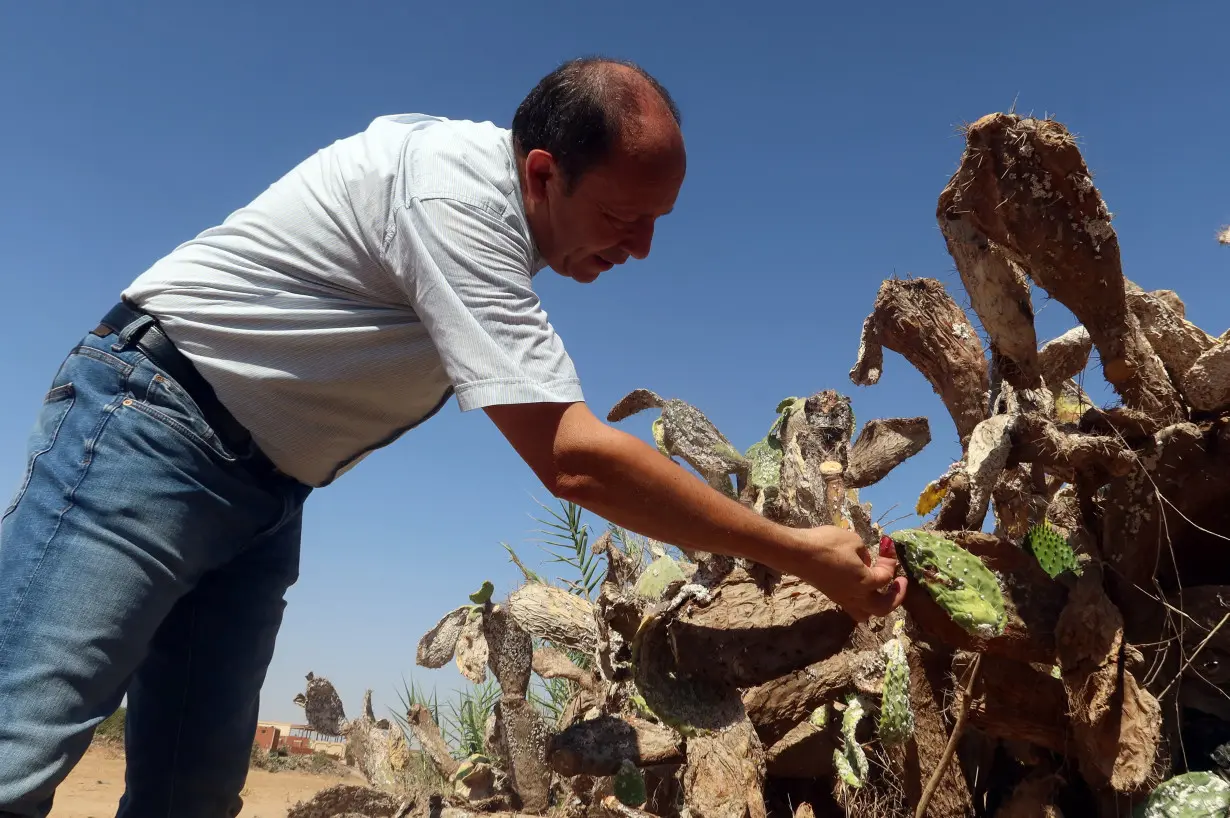
The Tunisian government and international organizations are now taking steps to try to mitigate the insect’s impact.
The Food and Agriculture Organization initiated a $500,000 emergency project to introduce biological control methods such as ladybugs, predators of the insect.
The Tunisian Ministry of Agriculture is promoting sustainable control measures, including changes in agricultural practices, pruning, and cleaning in production areas.
"We must have a sustainable solution for the cochineal insect. This situation should not continue in this way," said Naima Mahfoudhi, an official at the ministry of agriculture.
At his farm, Sahnoun takes measures to clean and protect his healthy prickly pear trees. But it will be a daunting task if the crisis persists and keeps drying up prickly pear trees.
"It starts at the bottom of the tree," he said.
Selma Jridi, who owns prickly pear trees, says the problem is out of her control.
"God's will prevails, this is God's judgment. Even the part that grows anew is affected by this disease, it deteriorates as if it had been cut with a saw," she said.
(Writing by Catherine Cartier; Editing by Michael Georgy and Susan Fenton)

 Stock market today: Asian stocks mixed ahead of US inflation data
Stock market today: Asian stocks mixed ahead of US inflation data
 TikTok seeks to reassure U.S. employees ahead of Jan. 19 ban deadline
TikTok seeks to reassure U.S. employees ahead of Jan. 19 ban deadline
 US won't seek charges in unarmed Black motorist Ronald Greene's fatal 2019 arrest
US won't seek charges in unarmed Black motorist Ronald Greene's fatal 2019 arrest
 Euro zone households could increase consumption, ECB chief economist says
Euro zone households could increase consumption, ECB chief economist says
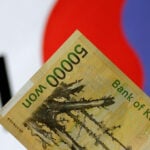 Foreigners sold South Korean equities last month by most since early 2020
Foreigners sold South Korean equities last month by most since early 2020
 As fires ravage Los Angeles, Tiger Woods isn't sure what will happen with Riviera tournament
As fires ravage Los Angeles, Tiger Woods isn't sure what will happen with Riviera tournament
 Antetokounmpo gets 50th career triple-double as Bucks win 130-115 to end Kings' 7-game win streak
Antetokounmpo gets 50th career triple-double as Bucks win 130-115 to end Kings' 7-game win streak
 No 97 Laura Siegemund upsets Olympic champion Zheng Qinwen at the Australian Open
No 97 Laura Siegemund upsets Olympic champion Zheng Qinwen at the Australian Open
